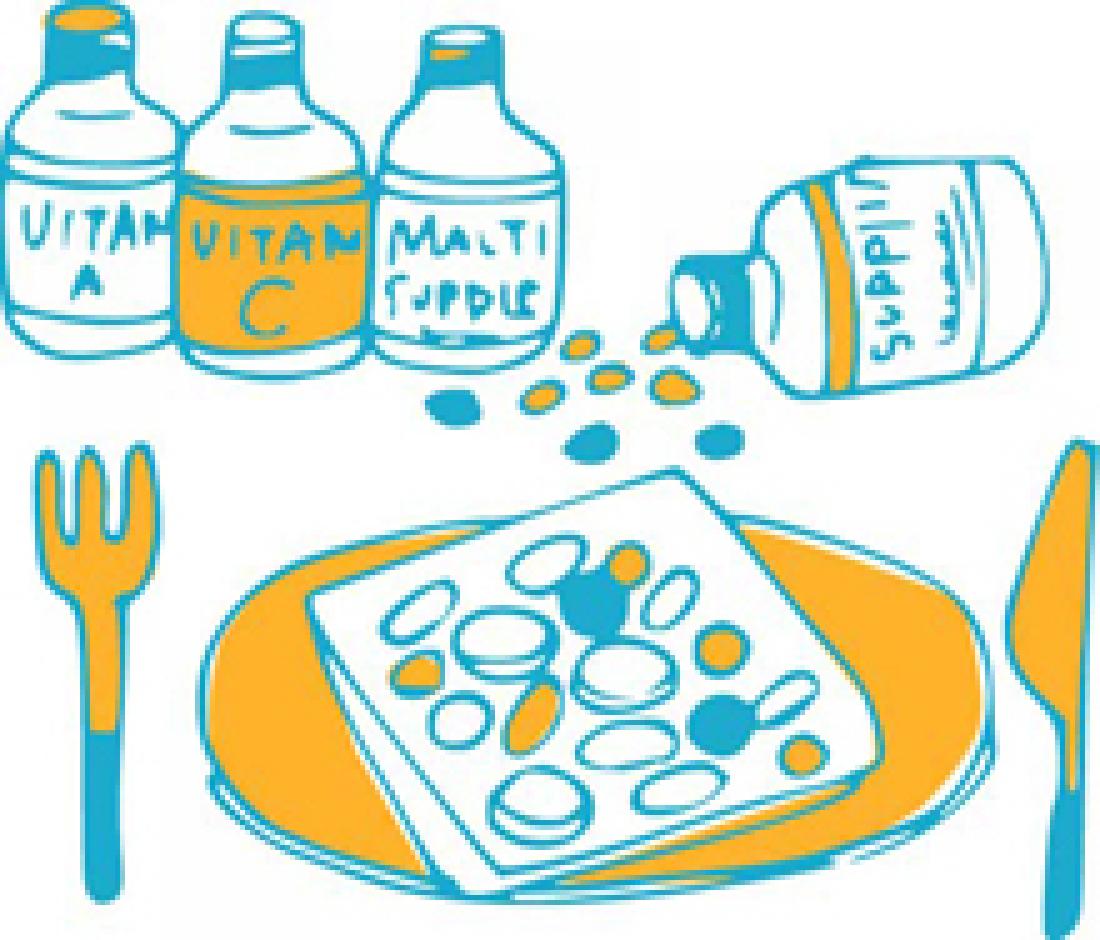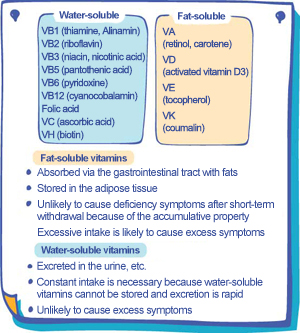Dietary supplement market mirrors modern society
People are busy these days, and they put health management at the bottom of their lists. It is not surprising that people tend to be attracted to a method of obtaining health easily.
The steady growth of the dietary supplement market reflects this background. Pharmaceutical companies also deal with dietary supplements as a portfolio of drugs, suggesting the appeal of their marketability. This shows that there is a great demand, and it reminds us of the change in our lifestyle as well as the abuse of dietary supplements.
As the name suggests, dietary supplements are meant to supplement something. Dietary supplements compensate for deficiencies that persist even with a balanced diet and sufficient sleep. We have to keep in mind that trouble could occur if we have the wrong idea on this note.
This is the age of self-medication
Has the term self-medication been absorbed as an everyday term in our lives? Self-medication is advocated by the World Health Organization (WHO) to “take responsibility for our own health” and “treat our mild illnesses by ourselves.” Naturally, people would think such things are impossible because they are neither a physician nor a pharmacist. However, these kinds of things are now expected of non-professionals.
It is estimated that 10 to 15 trillion yen of healthcare spending can be cut by 2025 if self-medication is introduced thoroughly. Since Japan is having an extremely difficult time finding financial resources, it will accelerate self-medication as a national policy. Some policies such as deregulation for non-prescription drugs and increased out-of-pocket payments in healthcare spending have already begun.
Under this situation, preventive measures with dietary supplements are showing a stronger presence among the options.
Risk of adverse reactions due to dietary supplements
The Internet has significantly changed distribution. Now we can buy all kinds of products easily. We should be aware now, however, that this might be hazardous to our health.
We tend to expect some beneficial effects to overseas dietary supplements, such as strong effects and prompt results. With this state of mind, many people import diet foods privately from abroad. But some dietary supplements may not be appropriate for us, even though they are popular in foreign countries, because of racial and lifestyle differences. In addition, it is highly likely that we consume products of poor quality because the control status of the manufacturing process is invisible.
We think carefully about the efficacy and adverse reactions of drugs. However, our psychological barrier tends to be lowered for dietary supplements. Drugs (ku-su-ri) and risk (ri-su-ku) are two sides of the same coin. Similarly, dietary supplements have inherent risks. In the case of private imports mentioned above, some damage to the liver and kidney are known. Recently, an adverse reaction of severe hepatic disorder due to butterbur (petasites hybridus) used with the expectation of therapeutic effects on hay fever, which seldom occur with drugs, was reported. Even dietary supplements distributed in Japan may heighten risks unless they are taken in appropriate amounts. There are many known cases in which turmeric, for example, which is taken with the expectation of enhanced hepatic function, conversely caused drug-induced hepatic disorder. Isoflavone is said to lower the incidence of dementia in postmenopausal women, but excessive intake increases the risk of developing gynecological diseases.
We should be aware that even dietary supplements have both bright and dark sides.
Dietary supplements are foods
In Japanese law, products taken orally are largely classified into drugs and foods. Dietary supplements including vitamins and foods for specified health use (FOSHUs) are regarded as foods and regulated by the Food Sanitation Act and Health Promotion Act. However, these acts are not as stringent as the Pharmaceutical Affairs Act applied to drugs. When products are governed by law, safety is ensured by law at the same time. This means that dietary supplements have no stringent safety standards compared to drugs.
For this reason, attention is paid to dietary supplements and FOSHUs so as not to fuel excessive expectations of consumers. In addition to active ingredients being within the predetermined range and nutrient function claims, reminders are necessary as a message for consumers. In other words, labeling based on the three principles of “write correctly, write concisely, and write clearly” is required.
Points to see our familiar supplements: vitamins
Dietary supplements show their dark side if we are unprepared to deal with them, but they shed light on our health. It is important to compensate for deficiencies.
Many people would imagine vitamins as supplements. We are familiar with vitamins because when we are tired or have mild illnesses, we can often recover just by taking some vitamins. There are many kinds of vitamins, however, and it is not easy to understand the characteristics of each vitamin properly. It is a good idea to understand an outline, at least, before dealing with vitamins.
There are two kinds of vitamins: fat-soluble and water-soluble. In the case of fat-soluble vitamins, some of the vitamin taken is accumulated in the adipose tissue. The vitamin accumulated in the body is transferred secondarily into the blood stream. If some additional vitamins are then taken, the amount may become excessive. Deficiency does not occur in the short term because of the accumulative properties, but it is necessary to monitor excess symptoms. Meanwhile, water-soluble vitamins are excreted into the urine if excess amounts are taken. Excess symptoms are unlikely to occur, but there is concern about deficiency because water-soluble vitamins cannot be stored in the body.
Amounts of active ingredients in dietary supplements can be controlled at the stage of processing. Excessive amounts of active ingredients that are hardly taken in the diet can therefore be consumed easily by preparing a small tablet containing large amounts of ingredients. We must be careful to avoid excessive intake as well as deficiency.
Fat-soluble vitamin A causes skin abnormalities at excessive amounts. In addition, excessive intake during pregnancy is known to heighten teratogenic risks in fetuses. There had been no known disorders due to the excessive intake of vitamin E, but recently a risk of osteoporosis was reported.
Even vitamin supplements, which are familiar to us, have a dark side. But most of this dark side can be prevented if we know fundamental properties. It is important to develop a discerning eye to deal with dietary supplements in a way that sheds light for us.
The dietary supplement market is expected to grow further. Perhaps, now is the time for us to reconsider how to deal with dietary supplements in the age of self-medication.
In self-medication, we need to take action in a proactive manner. To that end, we must face health management as our own problem.
Dietary supplements are useful and can improve our health and quality of life (QOL) if their inherent risks can be assumed. In order to deal with dietary supplements prudently, we should try to have an attitude of keeping and enhancing our health while consulting the specialists around us about the problems around us.
-----------------------------------------------------
Copyright Notice
All of the articles, images, photographs and other content displayed above are owned by Waseda University. Permission to reproduce any content is subject to the following Terms of Use.
Terms of Use
- Content may not be used in a manner that may harm the honor or reputation of Waseda University.
- When reproducing any content, you must request permission by notifying the Office of Information and Public Relations of Waseda University through e-mail ([email protected]) and indicate the title of the media and intended date of reproduction. Unauthorized reproduction is strictly prohibited.
- Please cite clearly the source of content at the end of each article using the following format (Source: ResearchSEA yyyy/mm/dd).
- Content may not be altered or modified in any way. Manipulation of photographs is strictly forbidden. Use of quotations as protected under copyright law is limited to summarization or quotation of the main point.
- Use of content is protected under the copyright law. Any claims or disputes, privacy issues, or other matters related to copyrighted content not owned or controlled by Waseda University becomes the sole responsibility of the user.





